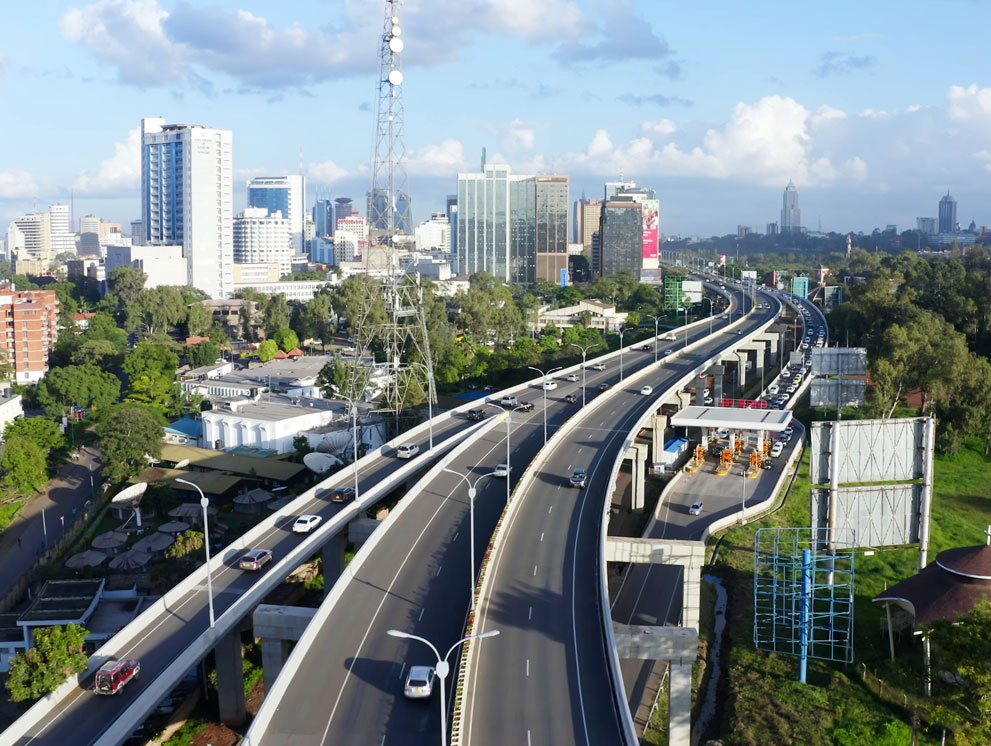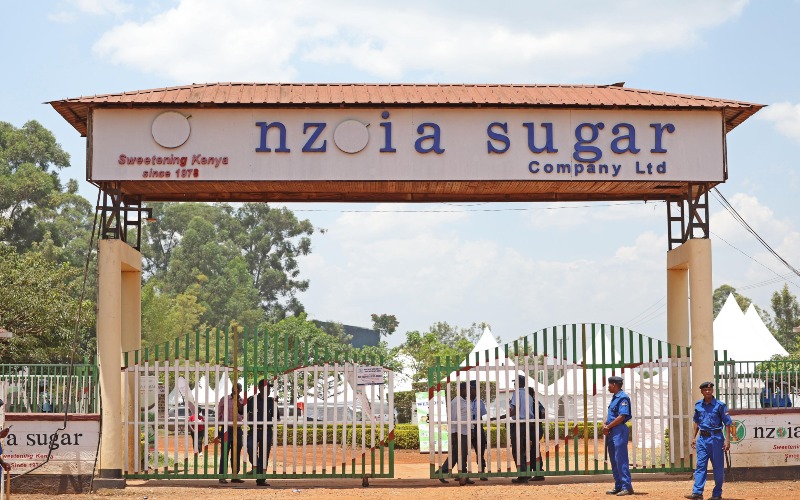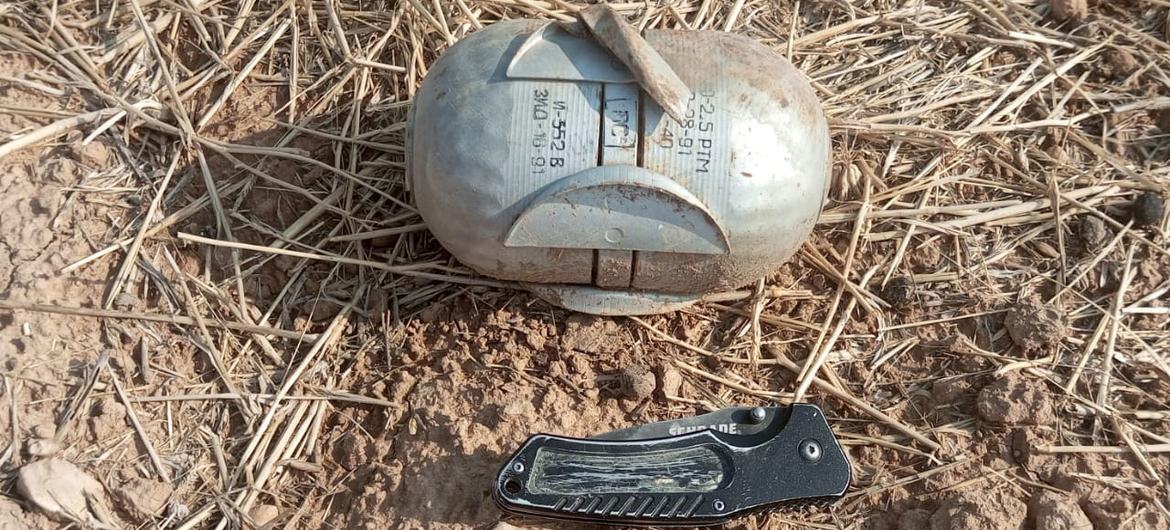Private sector activities rise in August as impact of Gen-Z protests fades
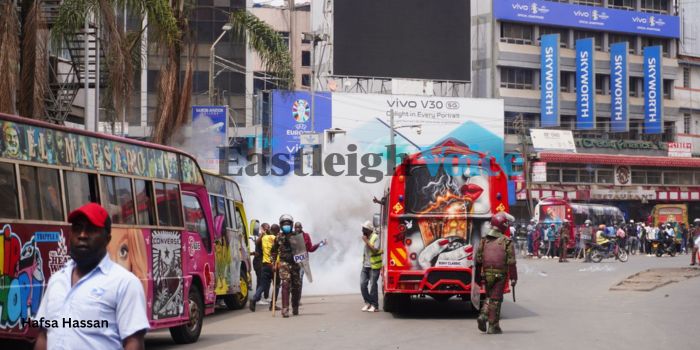
Selling charges also rose at a subdued pace, despite some reports of price discounting.
Private business conditions in the country recorded a mild recovery in August, as the impact of the July Gen-Z protests faded, allowing firms to broadly resume normal operations.
According to Stanbic Bank's monthly purchasing managers' index (PMI) survey, this is the first rise in private sector activity levels since May of this year, with new orders also picking up, albeit marginally.
More To Read
- Gen Z protests in Kenya: Key facts (2024-2025)
- UN human rights experts visit Kenya privately amid concerns over crackdowns, civic freedoms
- Kigame seeks court nod for private prosecutions over 2024–2025 protest abuses
- Private business activity growth surges in October on strengthening sales
- Police to deploy senior investigators as Rex Masai inquest uncovers new witnesses
- Morocco charges 2,480 in Gen-Z protests over poor governance, health and education
Firms also increased their input purchases, whereas employment fell for the first time this year.
The index also reveals that further pressure on import prices and taxation led to the sharpest rise in input costs since February, although overall inflationary pressures remained muted compared to the historical trend.
Selling charges also rose at a subdued pace, despite some reports of price discounting.
For the first time since May, the headline figure from the survey increased to 50.6 points during the month under review, up from 43.1 points in July.
Readings above 50.0 signal an improvement in business conditions from the previous month, while readings below that indicate deterioration.
However, the pace of expansion was only marginal, even as the businesses raised their output levels for the first time in three months during the period under review.
The rate of growth was moderate, the second-quickest in over a year and a half.
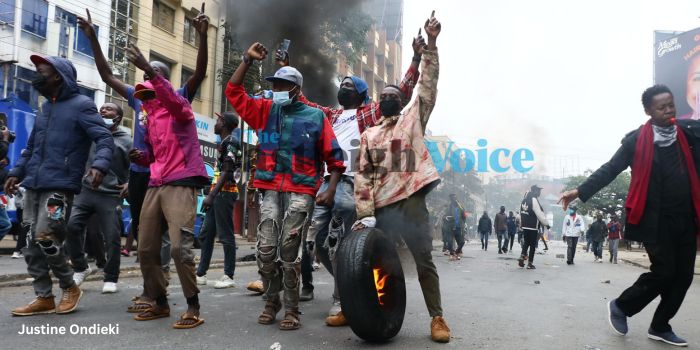 Protesters confront police officers along Tom Mboya Street in Nairobi on Tuesday, July 16, 2024. (Photo: Justine Ondieki/EV)
Protesters confront police officers along Tom Mboya Street in Nairobi on Tuesday, July 16, 2024. (Photo: Justine Ondieki/EV)Protesters confront police officers along Tom Mboya Street in Nairobi on Tuesday, July 16, 2024. (Photo: Justine Ondieki/EV)
When activity increased, survey panellists reported that it was often due to the end of political demonstrations, which allowed them to resume trading and complete new work.
Christopher Legilisho, an economist at Standard Bank, said the August PMIs show the private sector recovering merely marginally. Output and new orders improved after slumping during the preceding months, as anti-tax protests fizzled out.
"However, concerns linger about consumer spending, with many firms noting overall demand as weak in a tougher economic and business environment," Legilisho said.
"Consequently, firms cut employment after seven months of robust hiring; work backlogs therefore increased."
Output increased across three of the five broad sectors covered by the survey, with renewed growth in services, wholesale & retail, and construction.
By contrast, there were declines in activity across manufacturing and agriculture.
New orders placed at Kenyan businesses also picked up in August, although the increase was only slight.
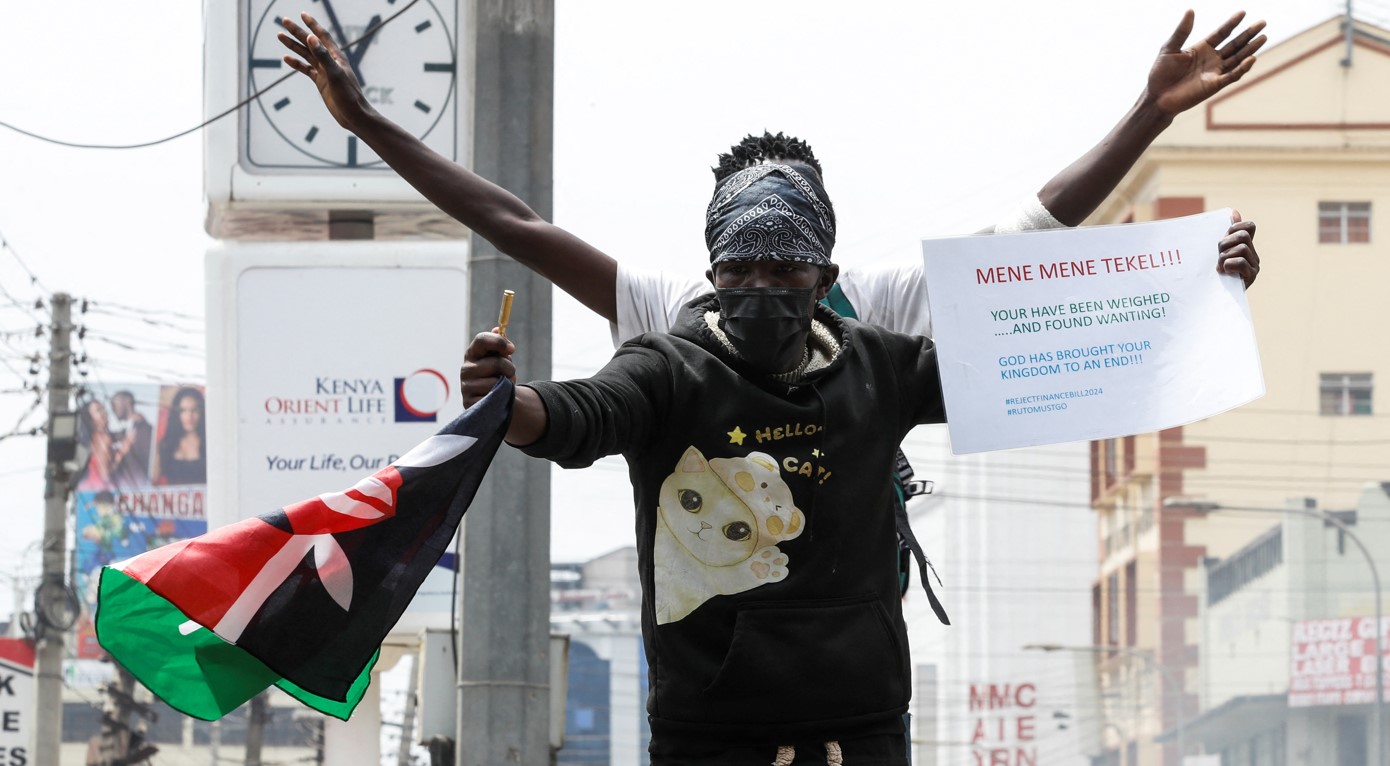 A man holds a bullet shell, a flag, and a sign during a demonstration over police killings of people protesting against the imposition of tax hikes by the government in Nairobi, Kenya, on July 2, 2024. (Photo: REUTERS/Monicah Mwangi)
A man holds a bullet shell, a flag, and a sign during a demonstration over police killings of people protesting against the imposition of tax hikes by the government in Nairobi, Kenya, on July 2, 2024. (Photo: REUTERS/Monicah Mwangi)
During this period, firms increased their input purchases, which was the first expansion in three months. This led to a slight increase in input inventories, supported by a renewed improvement in suppliers' delivery times.
The rise in import fees and tax burdens during the period under review consequently intensified cost pressures across the private sector.
For six months, the rate of overall input price inflation was the strongest, but it remained much softer than the historical trend.
In August, there was a slight increase in selling prices, compared to the survey average.
Price discounts partially offset efforts to pass on higher costs to customers.
Despite an improvement in business conditions, confidence towards future activity levels sank further in August.
The level of optimism was the lowest recorded in the series' history (since 2024), with only five per cent of companies expecting growth over the next 12 months.
Top Stories Today




